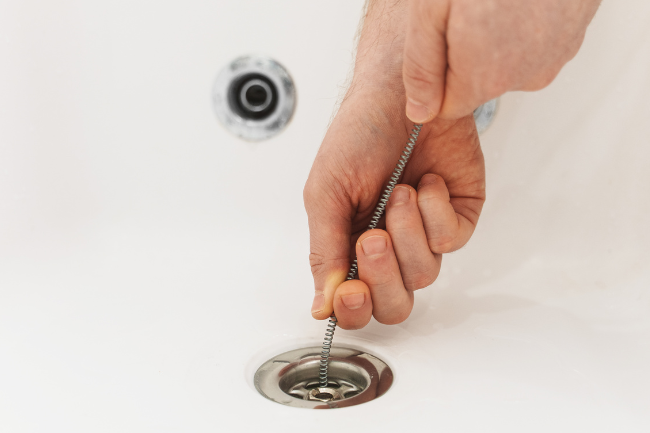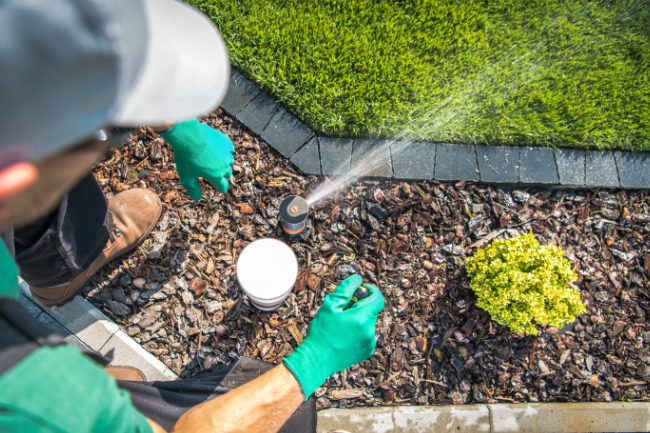Hard Water vs Soft Water (+ Hard Water Solutions For Your Home)
Posted by Express Sewer & Drain Team on
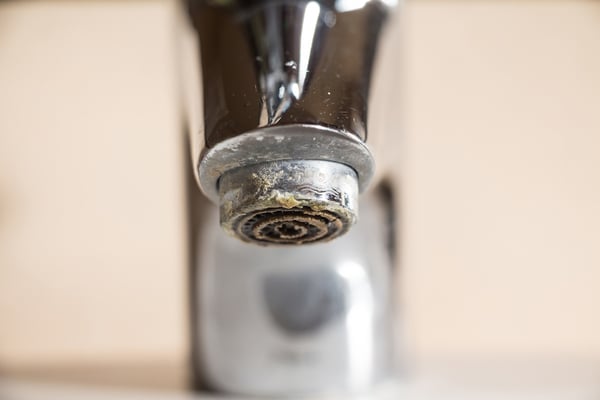
Hard water may be one of the most common plumbing problems across the country. An incredible 85% of the United States has hard water, so there’s a strong likelihood that you live in a state with hard water problems. When it comes to residential plumbing, understanding the difference between hard and soft water is crucial. So, let's take a look at the differences between hard and soft water, why it’s important to recognize the signs of hard water, and what hard water solutions are available.
Hard Water vs Soft Water
Despite its name, hard water is neither “hard” nor ice. So what is hard water? It is water that contains a large number of minerals. This happens because, before reaching water supply pipes, it passes through soft rock like limestone, chalk, or gypsum, and in the process, it picks up naturally occurring minerals such as calcium and magnesium.
Some people think hard water has a better flavor than soft water, but, you wouldn't want to wash with it. When you shower with hard water, you may not feel clean and your hair can have a dull appearance. Washing your clothes with hard water will make your garments grimy over time, and washing dishes with hard water will leave spots and stains when the water evaporates. These are called "hard water stains," and they can be a pain to get rid of.
Additionally, the presence of these minerals can lead to various problems such as scale buildup in pipes, reduced soap lathering, and mineral deposits on fixtures and appliances. Identifying and addressing hard water issues is crucial for maintaining plumbing systems and ensuring efficient water usage within the home.
On the other hand, soft water has been treated to remove these minerals, resulting in a gentler and more soluble form of water. To achieve this soluble form, the water passes through hard rock such as granite and will sustain a very small amount or no minerals during the movement.
Because of this, soft water has outstanding cleaning ability. In fact, this is what gives soap that nice, creamy lather. And with soft water, your dishes will be shinier, your hair will be more vibrant, and your clothes will get cleaner after a cleanse. Major appliances tend to have a longer life span in homes that have soft water. Also, soft water may increase the energy efficiency of these appliances. This is because soft water requires a small amount of energy turnout. Best of all, you won't have to re-wash your dishes to get them sparkling clean.
How is Hard Water Measured?
Water hardness is measured in GPG (grains per gallon). The visual below shows how water hardness differs across the country. Even if you don’t live in the “very hard” or “extremely hard” water zones, you may start to see the effects of hard water at around 7 grains of hardness. You can test your water using a hard water test kit (check out the best hard water test kits here) or by contacting your municipality if you are on city water.
As you can see, the majority of California has hard to very hard water. Sacramento hard water levels are at 9 GPG, which puts the area right in the middle when it comes to water hardness levels.
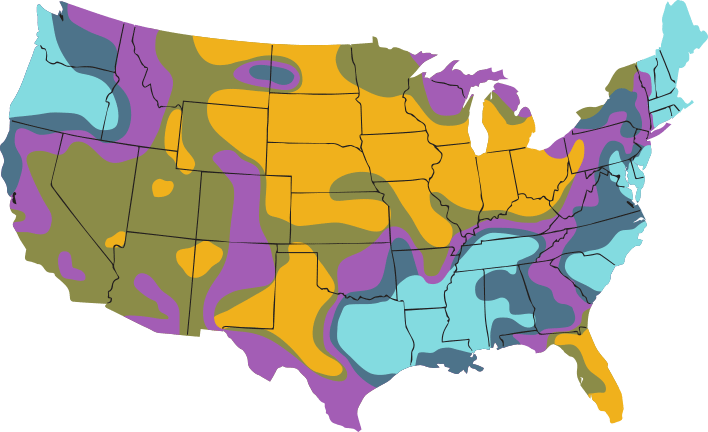

Is Hard Water Bad For You?
Hard water has been found to have no ill effects on the human body and actually can be quite good for you. Hard water can be a dietary supplement for calcium, magnesium, and other necessary minerals. There has been some evidence that hard water can reduce the risk of cardiovascular disease, but there has not been enough substantial research to correlate the two.
So, while hard water is not a problem for the human body, the same cannot be said for plumbing and household appliances.
What Are The Effects Of Hard Water on Plumbing Systems?
Due to its mineral deposits, hard water leaves a white residue on anything it comes into contact with, such as dishes, sinks, and glassware. When soap mixes with the calcium deposits left behind, it can produce soap scum. When this accumulates, especially in your shower and sink, it can be difficult and time-consuming to remove, which can have a devastating effect on plumbing and drainage systems. That's because these deposits will also build up inside your pipes and constrict the flow of water to faucets and showerheads.
Additionally, hard water can have expensive consequences. Besides scale buildup, hard water can put stress on plumbing systems and contribute to rusting while limiting the effectiveness of cleaning agents. You might find that your dishwasher and water heater operate less efficiently due to the mineral buildup. Appliances may use more energy, costing more money in the long run, and also requiring more maintenance and upkeep. In fact, according to the American Water Works Association, hard water can cause a washing machine to wear out 30% faster.
In short, hard water is impacting efficiency on your day-to-day appliances, which means you'll be spending more money on energy, repairs, and even replacements if these systems don't last as long as they should. Fortunately, there are a few different ways for homeowners to take action and address hard water issues in order to preserve the integrity of their appliances and plumbing features.
Understanding Your Hard Water Treatment Options
We've discussed some of the impact of hard water in your home, now it's time to talk about some solutions. When choosing a hard water treatment option, consider factors such as water quality, budget, maintenance requirements, and the specific needs of your household. So, be sure to evaluate all of your options and select the one that works best for you.
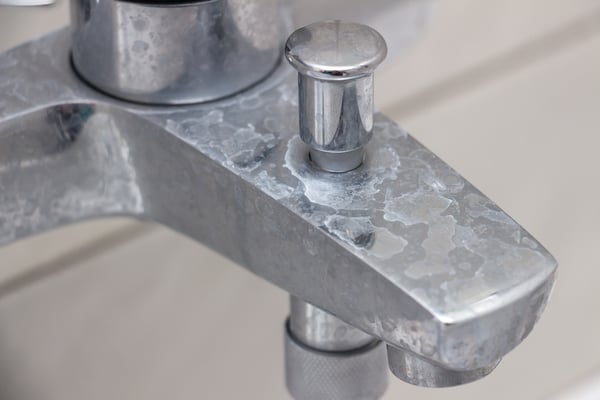
Water Conditioners
Salt-free water conditioners alter the structure of minerals in hard water rather than removing them. They use methods such as template-assisted crystallization (TAC) or catalytic media to prevent mineral buildup and scale formation without adding sodium to the water.
Water Filtration Systems
Certain water filtration systems, such as those incorporating activated carbon or ceramic filters, can remove some minerals and impurities from water, resulting in a reduction in hardness. However, these systems are typically not designed specifically for water softening and may have limited effectiveness.
Water Softeners
When it comes to water softeners, there are a few different options to consider.
- Chemical-based: Chemical treatments, such as adding chelating agents or sequestering agents to water, can temporarily prevent minerals from precipitating and forming scale. However, these solutions are typically used in industrial settings and may not be practical for residential applications. This is only a temporary solution since these cleaners do not remove the root cause and some cleaners can be harmful to your pipes, your health, and the environment.
- Ion-based: These systems use ion exchange to remove calcium and magnesium ions from water, replacing them with sodium or potassium ions. Water softeners typically consist of a tank filled with resin beads that attract and trap the minerals, requiring periodic regeneration with salt or potassium chloride. When implementing an ion exchange water softener for hard water treatment, a water filter is advised since the sodium ions can make your water taste salty. If you struggle with health issues, such as edema and high blood pressure, you should highly consider installing a water filter since excess sodium can contribute to these problems.
- Reverse Osmosis (RO) Systems: RO systems use a semipermeable membrane to remove various impurities from water, including minerals responsible for hardness. They are highly effective at producing high-quality, softened water but may require more maintenance and can be less efficient than dedicated water softeners.
Professional Plumbing
If the addition of a water softening system to your home is a bit complex, then you may want to consider reaching out to your local plumbers. Consulting with a professional plumber or water treatment specialist can help determine the most suitable solution for your home, and this will ensure that the issue is resolved the first time around.
Boasting some of the most highly skilled plumbers in Sacramento, Express Sewer and Drain can serve all of your plumbing needs. Whether you’re looking to install a water softener, a water filter, or both, we can provide the answer for your hard water solutions. Contact us now to set up an appointment or learn more about our services.
Topics: Home Plumbing, Plumbing Tips


